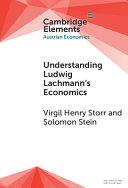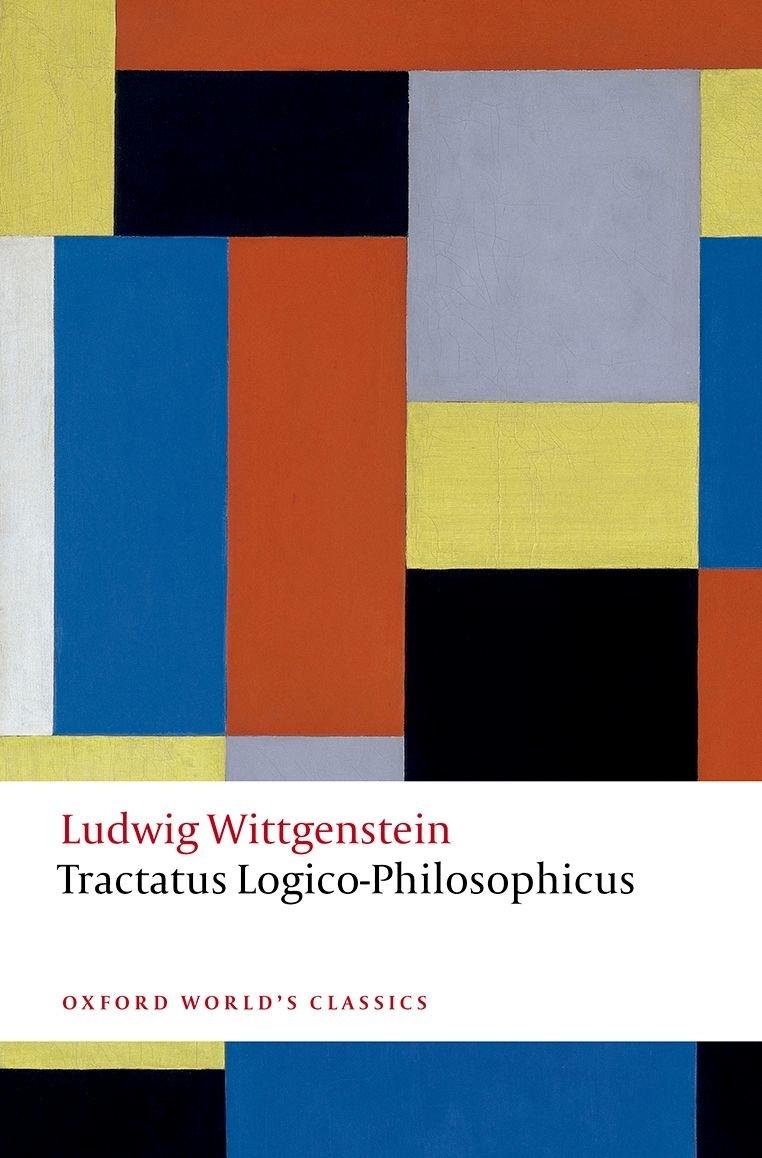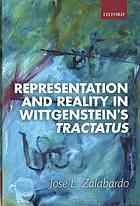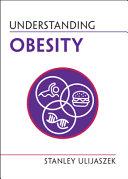LUDWIGLACHMANN ’ S ECONOMICS
VirgilHenryStorr
GeorgeMasonUniversity
SolomonM.Stein
GeorgeMasonUniversity
ShaftesburyRoad,CambridgeCB28EA,UnitedKingdom OneLibertyPlaza,20thFloor,NewYork,NY10006,USA 477WilliamstownRoad,PortMelbourne,VIC3207,Australia
314–321,3rdFloor,Plot3,SplendorForum,JasolaDistrictCentre, NewDelhi – 110025,India
103PenangRoad,#05–06/07,VisioncrestCommercial,Singapore238467
CambridgeUniversityPressispartofCambridgeUniversityPress&Assessment, adepartmentoftheUniversityofCambridge.
WesharetheUniversity’smissiontocontributetosocietythroughthepursuitof education,learningandresearchatthehighestinternationallevelsofexcellence.
www.cambridge.org Informationonthistitle: www.cambridge.org/9781009479363
DOI: 10.1017/9781009083539
©VirgilHenryStorrandSolomonM.Stein2023
Thispublicationisincopyright.Subjecttostatutoryexceptionandtotheprovisions ofrelevantcollectivelicensingagreements,noreproductionofanypartmaytake placewithoutthewrittenpermissionofCambridgeUniversityPress&Assessment.
Whencitingthiswork,pleaseincludeareferencetotheDOI 10.1017/9781009083539
Firstpublished2023
AcataloguerecordforthispublicationisavailablefromtheBritishLibrary.
ISBN978-1-009-47936-3Hardback
ISBN978-1-009-08766-7Paperback
ISSN2399-651X(online)
ISSN2514-3867(print)
CambridgeUniversityPress&Assessmenthasnoresponsibilityforthepersistence oraccuracyofURLsforexternalorthird-partyinternetwebsitesreferredtointhis publicationanddoesnotguaranteethatanycontentonsuchwebsitesis,orwill remain,accurateorappropriate.
ElementsinAustrianEconomics
DOI:10.1017/9781009083539
Firstpublishedonline:December2023
VirgilHenryStorr
GeorgeMasonUniversity
SolomonM.Stein
GeorgeMasonUniversity
Authorforcorrespondence: VirgilHenryStorr, vstorr@gmu.edu
Abstract: LudwigLachmannisacentralbutunderappreciated figure withintheAustrianschoolofeconomics.Althoughhisunderstandingof institutions,hisappreciationoftheheterogeneityofcapital,his emphasisonsubjectivity,andhisfocusonthedynamismand uncertaintyoftherealworldhavebecomedominantpositionsamong Austrianeconomists,heisstillviewedassomethingofanoutsider.As such,thecontributionsofLachmann’seconomicsarearguably misunderstood.ThisElementattemptstoteaseoutanddiscussthe criticalcontributionsofLachmann’seconomics.Arguably,onewayin whichtounderstandLachmann’seconomicsisbyseeingitasunifiedin considering,invariousways,asingleconceptual “problem”– the apparenttensionbetweenthedynamicnatureofsocialrealityandthe intelligiblenatureofthesocialworld.ApproachingLachmannwiththis themeinmindallowsustoputthingstogethermorecoherentlythan otherexegeticalstrategies.
Keywords: LudwigLachmann,plan,institutions,Austrianeconomics, F.A.Hayek
©VirgilHenryStorrandSolomonM.Stein2023
ISBNs:9781009479363(HB),9781009087667(PB),9781009083539(OC)
ISSNs:2399-651X(online),2514-3867(print)
1Introduction
LudwigLachmannisacentralbutunderappreciated figurewithintheAustrian schoolofeconomics.Althoughhisunderstandingofinstitutions,hisappreciation oftheheterogeneityofcapital,hisemphasisonsubjectivity,andhisfocusonthe dynamismanduncertaintyoftherealworldhavebecomedominantpositions amongAustrianeconomists,heisstillviewedassomethingofanoutsider. Moreover,Lachmannisviewedmoreasagadflythanapositivecontributorto Austrianeconomics.Assuch,thecontributionsofLachmann’seconomicsare arguablymisunderstood.
Unlikeotherkey figureswithinAustrianeconomics,Lachmann’scentralideas arenotlaidoutsystematicallyinasinglevolume.1 Instead,Lachmann’seconomics isdevelopedacrossseveralbooks. CapitalandItsStructure (1956),buildingupon Hayek’sideas,sketchesoutanalternativetoseeingcapitalasahomogenous aggregateandidentifiessomeoftheassociatedconsequencesformacroeconomic theory.In TheLegacyofMaxWeber (1971),Lachmannusesanassessmentof Weber ’smethodologicalideasasajumping-offpointtodevelopasubjectivist theoryofinstitutionsandinstitutionalchange.And,inLachmann’s TheMarketas anEconomicProcess (1986),heexamineshowcharacteristicdifferencesbetween particularclassesofmarketsinfluencetheresultingexchangeprocessestakingplace withinthem.Hisessaysandarticleshavealsobeencollectedinseveraledited volumes.ThelecturesofallthreespeakersattheSouthRoyaltonconferencewere publishedas TheFoundationsofModernAustrianEconomics (1976),editedby EdwinDolan,inwhichLachmann’schapterscoverthemarketprocess,capital theory,andtheAustrianschool’scritiqueofcontemporarymacroeconomics.There havealsobeencollectionsofLachmann’sownwritings,includingthevolume editedbyWalterGrinder, Capital,Expectations, andtheMarketProcess (1977) and ExpectationsandtheMeaningofInstitutions (1994),editedbyDonLavoie.As thesevolumetitlessuggest,evenasLachmanncoveredawiderangeoftopicsinhis writing,hereturnedfrequentlytosomekeythemes,includingcapitaltheoryandits consequencesformacroeconomics,understandingeconomicactivityintermsof processes,andtheimportanceofsubjectivephenomenasuchasmeaningsand expectations.Lachmann’swritingalsofrequentlytoucheduponthehistoryof economicthoughtandthen-contemporarydebateswithineconomicsasthey appearedfromhisperspective,includingaparticularinterestinthedevelopment ofpost-Keynesianism.
OthershaverecognizedthatLachmannoccupiesthispeculiarpositionwithin Austrianeconomics.WalterGrinder,inhisintroductiontoacollectionofessaysby LudwigLachmannpublishedin1977,forinstance,beganwiththeobservation
1 See,forinstance,Mises’ HumanAction (1949).
(Lachmann1977:3)that “formorethan fiftyyearsLudwigM.Lachmannhasbeen participatinginscholarlydebatesonthe developmentandapplicationofeconomic theory;yetheisrelatively unknowntoprofessionaleconomistandtheintellectual communityatlarge ... Lachmannremainsanoutsider.” DonLavoie,writingin his introductiontoacollectionofLachmann’sessayspublishedin1994,similarly suggestedthat(Lachmann1994:1) “his[i.e.,Lachmann’s]messagehasnotbeen adequatelyappreciated,evenbythosewhoknowsomeofhismajorworks.As adissidentmemberofadissidentschoolofthought,theAustrianschool,hisworkis notwellknownintheeconomicsprofessionatlarge.” Storr(2019:64),inanessay thatwasoriginallyakeynoteaddresstoaconferencecelebratingtheintellectual legacyofLudwigLachmanndeliveredin2017argued “that,despitetherecognition hehasanddoesreceive,Lachmanndoesnotgethisdue.”2
Inmanyways,Lachmann’stravelsandprofessional fortunesserveassynecdocheforthoseoftheideastowhichhewascommittedoverthatsameperiod.Born inGermanyin1906andenteringtheUniversityofBerlinin1924,Lachmannwas, firstofall,aproductofthesameintellectualenvironmentofGerman-language academiathatincubatedtheAustrianschoolasitwasbeingdevelopedbyCarl Menger,LudwigvonMises,andothers.3 Lachmann,however,wasnotinitially apartoftheschoolitself.HisdoctoralsupervisorwasWernerSombart,leaderof theGermanHistoricalSchool,whichopposedtheAustriansduringthe Methodenstreit 4 Likesomanyothers,thepoliticalandeconomicupheavalofthe early1930ssawLachmanndepartGermany,inhiscase,forEngland.
AlthoughalreadyhavingreceivedhisdoctorateinBerlin,hebecameastudent attheLondonSchoolofEconomicsunderF.A.Hayek.In1933,then,Lachmann isinthemostimportantacademicenvironmentininterwareconomics,studying withthepreeminentrisingacademicmemberoftheAustrianschool.Thiswasto provethehigh-watermarkfortheincorporationofdistinctivelyAustrianelementsintotheneoclassicalsystem.As Lachmann(1994:160)recalls, “When IarrivedattheLondonSchoolofEconomicsinthespringof1933,allimportant economiststherewereHayekians.AttheendofthedecadeHayekwasarather lonely figure.” Whilethe1930swereaperiodwhereAustrianideas,particularly asdevelopedinHayek’swork,werefront-and-centeroftheprofessionaland practicalcontroversiesoftheday,theperceptionbecamethatthedistinctive positionsoftheAustrianschoolhadbeenconclusivelydisproven.Thedecline oftheAustrianschoolwithintheeconomicsdisciplinewasalossthatLachmann
2 Seealso Lewin(2018)
3 See Dekker(2016) foraninterestingexplorationoftheintellectualandculturalmilieuthatgave risetotheAustrianeconomics.
4 Eicholz(2017) exploresindetailLachmann’sworkinBerlinandhisrelationshiptotheGerman HistoricalSchoolingeneral.Seealso FritzandNovak(2022).
feltparticularlykeenly.Wecanattributethisinparttohishavinggravitatedto Austrianeconomicsinparticularduetotheveryelementsthatwerenowentirely outoffavor.
LachmannbecameallthemoreremotewhenherelocatedtotheUniversityof WitwatersrandinJohannesburgin1948.But,whentheAustrianschoolandits ideasmadetheirreturnwithinacademiceconomicsintheearly1970s, Lachmann,too,wasabletoreturnfromhisandtheschool’sso-called “yearsin thewilderness” (1994:161).Lachmannwasoneofthethreekeynotespeakersfor the1974conferenceatSouthRoyalton,arguablythecriticaldateintherevivalof theAustrianschool(Vaughn1994).And,then,inthefollowingyears,we find Lachmann,asavisitingprofessoratNewYorkUniversity,oncemoreatthe epicenteroftheAustrianschool’sintellectualactivity.As Vaughn(1994:139, fn.2)notesinheraccountoftheAustrianrevival, “eithergraduatetrainingat NewYorkUniversityorparticipationinthevisitingprogramtherevirtually becameadefiningcharacteristicofanewAustrianeconomistinthe1980s.”
Thisprojectattemptstoteaseoutanddiscussthecriticalcontributionsof Lachmann’seconomics.Arguably,onewayinwhichtounderstandLachmann’s economicsisbyseeingitasunifiedinconsidering,invariousways,asingle conceptual “problem”– theapparenttensionbetweenthedynamicnatureof socialrealityandtheintelligiblenatureofthesocialworld.Approaching Lachmannwiththisthemeinmindallowsustoputthingstogethermore coherentlyinatleasttwoways.First,itprovidesalodestarforonesignificant componentofLachmann’scorpus,inparticularhismethodologicalcontributions,historyofthoughtessays,andworksofdoctrinaldisputation.Indeed, centeringtheproblemofcoordinationsuggestsanavenueforassessingwhat Lachmannviewedasthemajorachievementsandopenchallengesforthesocial sciencesinunderstandingthesocialworld.HowLachmannunderstoodthose difficulties,however,isnotpurelyofinterestasamethodologicalorinterpretive tool.OnceweknowtolookatLachmann’sworkfromthisperspective,wecan identifydeepinterconnectionsamongwhatmightotherwisebeseenasthe disjointedtopicsofhiscontributionsregardingeconomics “proper” (particularlyhisworkonexpectations,capital,andinstitutions).
OnequestionwemightaskiswhyanewintroductiontoLachmann’sideas? Onereasonisthatalreadynoted:Lachmann’sstockhassimultaneouslyrisenand yetremains(inourassessment)undervalued.Thisisnot,however,simplyamatter ofensuringthatLachmannisassigned “enough” importanceasamemberofthe Austrianschoolfromwhichthecontemporaryresearchprogramofmarketprocess theoryoriginates,orofexhaustive “scoresettling” concerningthedebatesinwhich Lachmannparticipated – althoughofcoursewherethedebatesconcernnotleast theinterpretationofLachmann’sargumentsthemselvesthentakingsomeposition
isunavoidable.Ifthegoalwere,afterall,tomakethecauseformererecognitionor “correctness,” wecouldhaveeasilychosenatitlelike AppreciatingLachmann’ s Influence or WhyLachmann’sCriticsWereWrong orsimilar.Instead,implicitin choosing UnderstandingLudwigLachmann’sEconomics isaslightlydifferent aim,theprovisionofwhatwewilldescribelaterasanopen-endedintroductionto Lachmann’sworkandhisideas,apotentialpointoforientationbothtothereading ofLachmannasaprimarysourceandtothepossiblecomplementaritiesofferedby engagementmoredirectlywithLachmann’sideasforcontemporaryresearch.This approachtoengagingLachmannisendorsedbynoneotherthanLachmann himself,ashisviewwasthat “Thehistoryofthoughtisacriticalenterprise. Everyideacontributedinthepaststandsinneedoffrequentre-examinationand reinterpretation.Themoreimportantwethinkanidea,themoreoftenweshall havetodothat” (Lachmann1971:ix).
Theorganizationofthesubsequentexegeticalmaterial,therefore,beginsby lookingathowLachmannunderstoodwhat “thedif ficultiesinherentinmutual coordination” meansandtheirimplications,thenturningtohowthecentral areasofLachmann’stheoretical-conceptualwritingcomeasaresponsetothe researchagendasuggestedbyfocusinguponthem.WearguethatLachmann’s economicsisprimarilyconcernedwiththeproblemofcoordination. Section2 discussesLachmann’sradicalsubjectivism,theconsequencesofactiveminds andtheproblemofkaledicnihilism.Next, Section3 ,exploresLachmann’s understandingmarketsasadjustmentprocessesforreconcilingplans,the challengeofplanadjustmentoutsideamarket,andtheroleofinstitutions. Section4 ,then,explorestheself-similarstructureofsocialsystems,thenotion oforientation,andthecentralityoftheplaninLachmann’seconomics.We alsoreturntoandextendourdiscussionofLachmann’sunderstandingofthe conceptandroleofinstitutions.In Section5,wediscussLachmann ’streatmentofcapitalgoodsasinstitutions.Finally, Section6 concludeswith adiscussionofLachmann’slegacy.
2RadicalSubjectivism,theConsequencesofActiveMinds, andtheProblemofKaledicNihilism
ThestartingpointforanystudyofLachmann’sideas(andarguablyAustrian economics)iscertaintobe subjectivism 5 AsLachmannwrites, “The first,and mostprominent,featureofAustrianeconomicsisaradicalsubjectivism,todayno longerconfinedtohumanpreferencesbutextendedtoexpectations” (Lachmann 1978b:1).Indeed,Lachmannisoftenaccuratelyidentifiedasthestandardbearer
5 Seealso Lavoie(1991)foradiscussionofthecentralityofsubjectivisminunderstandingthe uniquenessoftheAustrianschool.
oftheradicalsubjectivistposition.As Loasby(1998:14)argued, “Lachmannwas themostresoluteadvocateofsubjectivismasthemeansofinvestigatingthe consequencesofindividualpurposes,understandingandexpectations,allof whichdifferbetweenpeople,andchangewithtimeandexperience.” Similarly, as Vaughn(1994) described,manyofthedevelopmentswithinthemodern Austrianschoolcanbeunderstoodasattemptstoeitherteaseouttheimplications ofsubjectivismasdiscussedbyLachmannortofortifyAustrianeconomics againstLachmann’sradicalsubjectivism.Asshe(Vaughn1994:114)writes,
LachmannhadinitiallyjoinedKirznerinconvincingthenewAustrians thattheirstrengthlayinatheoryofthemarketprocess.Nowhewas offeringsuggestionsonhowtoproceedwithdevelopingsuchatheory. Byidentifyingradicalsu bjectivism,time,andmeth odologicalindividualismasthecornerstonesofAustrianeconomics,hewasinfactemphasizing thosepartsofMisesthatweremostdifferentfrommainstreameconomics andwerealsomostfaithfultotheorig inalMengerianprogram.Asitturned out,byfocusingonsubjectivism,time,andmethodologicalindividualism, LachmannalsowasinadvertentlygivingthenewAustrianstheirmarching orders.Almostallsubsequentwritingwastobeanelaborationofsome implicationofthesethemes. 6
Subjectivismisanideawithmultiplesignificances.Itwas, first,amethodological positionandLachmann’spreferredcoveringtermfortheoverallschoolofsocial scientificthoughttowhichhebelonged.SubjectivisminLachmannisadditionally usedtoexpresscertainelementsofLachmann’sontologicalpriors,particularlyhis rejectionofdeterministicrepresentationsofhumanchoice.Therefore,(methodological)subjectivismisboththecontextinwhichthetheoreticalchallenges Lachmanndiscussesconcerningmutualcoordinationareraisedanditself(inthe “radical,” ontologicalsense)onereasontheyareparticularlyformidable(andthus important)forhim.
Methodologicalsubjectivism,asdefinedby Lachmann(1994:237), “is aresearchprogrammeofthesocialscienceswhichaimsatelucidatingsocial phenomenaintermsoftheir inherentmeaning,i.e.intermsoftheirmeaningto actors.” Wecanenumeratetheclaimsundergirdingthisdefinition,beginning fromthealmosttrivialtothemoresignificant: (1)People(intheloosestsense)interactwiththeworldinawayradically unliketherestoftheobjectsaroundthem,andthusgiverisetothefeatures ofeventsandclassesofeventsthatmakeuptherealmofthe “social.”
6 HereLachmannissimplyechoing Hayek(1955:31),whofamouslyarguedthat “itisprobablyno exaggerationtosaythateveryimportantadvanceineconomictheoryduringthelasthundred yearswasafurtherstepintheconsistentapplicationofsubjectivism.”
(2)Thesourceofthedistinctly “social” isindividuals’ possessionofan autonomousinternalfacultyofevaluationanddecision-makingthatstands inacausallypriorrelationshiptotheirobservableaction,the “activemind.”
(3)Socialphenomenaareofaqualitativelydistinctcharacterfromthose examinedinthenaturalsciencesbecauseoftheiroriginationinthemental processesoftheintrinsicallyteleological “activemind.”
(4)Thischangestheunderstandingthatstudyofsocialphenomenacanprovide intotheirnaturevis-à-visthephysicalsciences.
(5)Ourabilitytoengageintheintelligiblereconstructionofthemeanings locatedwithintheunobservabledomainofotherindividuals’ activeminds ispossibleatallbecausewe(a)recognizethosemindsasmirrorsofour owncognitionand,onthatbasis,(b)identifythestructurallogicwhich givesrisetomeaning.
(6)Thementalobjectinwhichthesevarioussortsofconceptsandtheir relationsareultimatelybroughtintocoherenceis “theplan,” whichthereforeservesasthebasicanalyticalunitofsubjectivistinquiry.
Lachmann’sunderstandingofmethodologicalsubjectivismhereis firmlyin linewithothersintheAustrianschool.RecallthatMisesobservedthat “oursis ascienceofmeaning.” As Mises(1949:26)stated, “wecannotapproachour subjectifwedisregardthemeaningwhichactingmanattachestothesituation, i.e.,thegivenstateofaffairs,andtohisbehaviorwithregardtothissituation.” Similarly,Hayekhasremarkedthat “thefactsofthesocialsciencesarewhat peoplethinkandbelieve.” Also, “unlesswecanunderstandwhatactingpeople meanbytheiractionsanyattempttoexplainthem isboundtofail” (Hayek 1955:53).And, “itisprobablynoexaggerationtosaythateveryimportant advanceineconomictheoryduringthelasthundredyearswasafurtherstepin theconsistentapplicationofsubjectivism” (Hayek1955:31).
Lachmann,then,infocusingonthemeaningsthatindividualsattachtotheir actionsasthewaytounderstandhumanactionishardlybreakingnewground. Lachmann’selucidationoftheconsequencesofactivemindsandhiselevationof “theplan” asbeingkeytounderstandinghumanactionwere,however,quite novel.Indeed,subjectivism,asLachmannunderstoodit,appreciatesthesignificanceoftheactivemind’sfundamentallyautonomousandcreativenature.The activemindiscapableofchangeindependentofexternalcausalfactorsand thereforecapableoftheproductionofgenuinenovelty.Althoughsubjectto boundariesandconstraints,thesefeaturesoftheactivemindmaketherealmof thesubjectiveonecharacterizedbyperpetualchangeofanopen-endedcharacter. Itisnotconfinedtoanywell-defined “range.” Statedanotherway,whilebounded, the “possibleactionspace” isofinfinitevolumebecauseoftheever-present
potentialforcreativevariationsevenofotherwisesimilaractions.Ourunderstandingofactionmustthereforereflectthesefeaturesoftheactivemind. Lachmann(2020:55)describesthisasashiftfrom “subjectivismastheexpressionofhuman ‘disposition’ tosubjectivismasamanifestationofspontaneous action.”
AccordingtoLachmann,theimplicationsofthisforeconomicmethodology areprofound.Itis,forinstance,difficulttoconsidertheconsequencesofopenendednesswhenemployingentirelyself-containedconstructslikepreference mapsandthetoolsofconstrainedmaximization.Remainingwithinthese constructslimitstheextenttowhichwecanunderstandtheroleofcreativity andinterpretation.Evenworseistheinherentstasisofdeployinga “snapshot” whendealingwiththedynamiccharacteroftheactivemind.Inessence,time andknowledge(or,morecarefully,theelapsingoftimeandchangesinknowledge)areconsubstantial.7 Foremost,therecognitionofthesignificanceofthe activemindcallsforthereaffirmationofthenondeterministicnatureofsocial phenomena,overandagainstthetemptationtousestaticdevicesto “understand” actionasaformofmechanicalresponsegivencertain(subjective)data. “Theautonomyofthemind,” Lachmannargues, “precludesdeterminism:If knowledgeshapesactionandactionshapesthehumanworld,thefutureis unpredictable” (1978b:15).8
Importantly,thestrongerone’scommitmenttotheautonomouscapacitiesof theactivemind,themoreseriousachallengethatcapacityrepresentstothe subjectivistmethodologicalprogramanditsgoalofunderstanding.Indeed, theverymentalentitiesandtheirsubcomponentsthatsubjectivismidentifies astheunderlyingcauseofsocialphenomenacould,withoutanyoutward indication andfornoreasonwhatsoever (extrinsicorotherwise)alteranyand alloftheirsalientfeatures,orsimplyceasetoexist.As Lachmann(1971:11) explains, “anyinitialsituation,howevermuchcarewetaketodefineitprecisely andobjectively,maysuddenly turnintoanotherdifferentsituationmerely becausetheindividualsactinghave ‘changedtheirminds.’” Worse,thisisnot ameretheoretical “capacity” butonewhich, Lachmann(2020:4)believes,is ceaselesslytakingplace,as “timecannotelapsewithoutknowledgechanging.” Theworldofthemindisperpetuallyundergoingchangeswhich,being
7 Onthis,see Lachmann(1977:90).
8 Arguably,thiswasthepointatwhichLachmann’smethodologywasanchoredintoontological bedrock.Whileinamethodologicalcontextheiswilling(Lachmann1977:167)todefendthe autonomyofthemindasa “usefulhypothesiswhichhasnothithertobeeninvalidated,” this qualificationisaloneislandamidaseaofquotationswhosetoneismoreinkeepingwiththeone precedingit.(Eventhisconcession,althoughnotinsincere,appearsinacontextwhereitserves moreasrhetoricalapophasisthananythingelse.)
fundamentallyopen-ended,canneverbeentirelycapturedintermsofagiven patternorrule.
Lachmann’sontologicallysubjectivistemphasisandamplificationofthe unboundedandincessant fluxinherenttotheactivemindsuggeststhepossibility thateven “theplan,” whichLachmannidentifiesasthecoreanalyticalobjectof interestin(methodologically)subjectivistexplanation,isimpermissiblystatic. Perversely,placingagreateremphasisupontheautonomousandopen-endednature oftheactivemindaspartofanefforttodefenditsteleologicalweightwouldappear nowtobeultimatelyfataltotherelevanceofitsteleologicalelements.Theactive mind’seffortstoengageingoal-directedactionmaybehopelessinthefaceofthe arbitraryandrapidlyshiftingstateoftheminditself.Certainly,placinggreater emphasisuponthepossibilityofceaselessandunpredictableautonomousshiftsin knowledgemakessuchaconclusionthatmuchhardertodismiss.
Thisconclusionmarksour firstencounterwithkaledicnihilism – thepossibilitythatwithinacertainsituationorcontextthedisruptiveeffectsofendogenous changearesooverwhelmingthatnofurtheranalysisispossible.Despitewhat wouldseemtobethethrustofhisemphasisontheopen-endednessattributableto theactivemind,Lachmanndoesnotconcludethatindividualactionrepresents asituationsubjecttokaledicnihilism.Hedoesnotrejectkaledicnihilism, however,becauseheviewstheforcesthatmakeitappearplausibleasinsignificant.Instead,Lachmannbelievesthattherearestabilizingforcesatworkthat compensatefortheveryrealimpactoftheactivemind’sconstantactivity.What thoseforcesare,howeffectivetheymaybe,andanyconsequencesofthewayin whichtheyoperatethusbecomebasicquestionsofunderstandingsocialaction.
Inthecaseoftheindividual’sactionoverthecourseoftime, Lachmann(1971: 37)pointsoutthatwhileactionis
notdeterminate ... neitherisitarbitrary.Itisbounded, firstly,bythescarcity ofmeansatthedisposalofactors secondly,bythecircumstancethat, whilemenarefreetochooseendstopursue,oncetheyhavemadetheirchoice theymustadheretoitifconsistentactionwithachanceofsuccessistobe possibleatall.
Whenweobserveanactingindividual,wecanatleastbesurethattheplanto whichthoseactionsareorientedisonewhichthatindividualbelieves,atthat time,willachievethemostdesirablecombinationofendswiththemost economyofavailablemeans.Partoftheexplanationofwhyindividualaction issufficientlycoherenttobeanintelligibleobjectofstudyisthatitresides withinthescaffoldingoflogicalrelationships(indeed,tautologies)following fromaction’steleologicalcharacter,whichLachmann,following Hayek(1948: 47)attimesreferredtoasthe “PureLogicofChoice.”
Thepresenceofsuchanoverallstructure,ofcourse,canonlyreallyserve asastartingpointtoaddressingthespeci fi cally kaledic componentofthe kaledicnihilismproblem.Theactivemindcouldremainimpossibleto understanddespiteourknowledgeofitsstructurallogicduetothepossibilitythattheactingindividual ’sknowledgechangesatasuf fi cientlyrapidrate thatthecoherentplanatoneinstantgiveswaytoadiscontinuousbutequally coherentplanatthenext,fastenoughperhapsthatnoneofthoseplansare givenmorethantrivialmanifestationsinaction.Iftheonlythingswecould knowwerewhatwecouldconcludeonthebasisofthePureLogicofChoice, Lachmann(1977 :84)pointsoutthatitwouldindeedbethecasethatthe consequenceofrapidchangesinknowledgeandplanswouldbethat “ there couldbenotestingofplans,noplanrevision,nocomparisonbetween exante and expost .Infact,plannedactionwouldmakenosensewhatsoever. ” Lachmann,however,arguesthatwecanunderstandwhythe “ threat ” of kaledicnihilismre gardingindividualactioni snotrealizedifinsteadof approachingtheproblemasonein whichtheactivemindemploysan undifferentiatedstockof “ knowledge ” thatissubjecttoendogenouschange that,aboveacertainrate,impliesas ituationofkaledicnihilism,wealso recognizethepotentialfordifferentpropertiestobepossessedbydifferent typesofknowledge.
Althoughtheopen-endednatureoftheactivemindmeanswecannevertreat thesecategorizationsasacertainty,ingeneral,differenttypesofknowledgewill varyin(amongothercharacteristics)howpronetheyaretothesortofautonomousrevisionsthatconcernushere.Asthepurestexpressionoftheessential autonomyoftheindividualmind,endsarelikelysubjecttotheleaststability,but becausethoseendsarepursuedviadrawinguponarangeofothertypesof knowledgethathavegreaterintertemporalcoherence,wearegenerallyableto connectactionsovertime.Additionally,althoughLachmannunderstandsthe activemindtoinvolveacontinuallychangingconfigurationofknowledge, internalautonomouschangesareunlikelytobethedominantsourceofsuch changes.Instead,thebulkofsuchchangeswillbepromptedbyalterationstothe individualactor ’senvironment.Ofcourse,thetransmissionofknowledge regardingthesechanges “outthere” tothemindisofcriticalsignificanceto theeventualsuccessorfailureofanygivenplan,butplanfailure – evenon accountofinadequatetransmissionofknowledge – doesnotpresentthesortof existentialproblemforsubjectivismthatkaledicnihilism’suniversalplan incoherencedoes.
Lachmann’sapproachtotheindividualis,thus,forcefullyagainststaticand equilibriumapproachesthattrivializeknowledgeandchange.But,whilerecognizingthatthesubjectivistpictureoftheindividualdoesopenthedoortothe
(analyticallydisastrous)potentialforkaledicnihilism,heavoidsendorsingit.9
Thekeytaskofsocialtheorists,asLachmannseesit,isbothtoresistthe temptationtotheorizeinawaythatarbitrarilysanitizestherealityofchange andtoremainopentowhateverformsoforderareinevidence.
3MarketsasAdjustmentProcessesforReconcilingPlans,
theChallengeofPlanAdjustmentOutsideaMarket, andtheRoleofInstitutions
Lachmanniscommittedtotheorizinginawaythatdoesnotarbitrarilyabstract fromtherealityofchangeandthatfocusesonthedifferentformsoforderthatwe witnessintheworld.Thisisclearinhisdiscussionsofmarketsassystemsfor dealingwiththeunavoidableinconsistencyofactors’ plans.10 Onlyinaworld verydifferentandmuchlesscomplexthanourown,Lachmannargued,couldwe expectplansofcompletemutualcoherence.Inourworld,however,weshould expecttheretobebothbearsandbulls,bothactorswhothinkexistingpricesare toohighandthosewhothinktheyaretoolow,bothactorswhoarepessimisticand thosewhoareoptimistic.Moreover,inourworld,weshouldexpecttheretobe actorsfromdifferentcultures,religions,andbackgrounds,whodisagreeonthe appropriatenessanddesirabilityofcertaintypesofinteractions.
Assuch,forLachmann,makingsenseofinterpersonaladjustmentwasofprime theoreticalinterest.Hewas,thus,principallyconcernedwithboth(1)howthe marketprocessworks(i.e.,thedynamicsofplaninteractionwithinthemarket contextwhichgenerateitsmanyregularities,includingits “equilibrating” forces)as wellas(2)understandingtherelationshipofthemarketprocesstotheoverall pictureofsocialorganization. “Inconsistencyofplans,” Lachmann(1977:154) explains,isthefarmoreinterestingsituation,as “[i]nthiscasewehavetoargue fromthedivergenceofplanstotheirdisappointmentandhencetotheirrevision.”
LikeMisesandHayek,Lachmannbelievedthatsocietywasfundamentally dependentonthepossibilityofplanadjustmentandreconciliation,andthatplan coordinationdependsonpricesgeneratedwithinamarketprocess.11 Thesubjectivistposition,inLachmann’sview,understoodmoreclearlythantheiropponents thatthesocialfunctionofthepricesystem – the “marvelofthemarket”– stemsnot
9 See Lewis(2011) foranaccountofhowLachmannmighthaveavoidedthechargesofnihilism thatwassometimesleveledagainsthisapproachifhehadfocusedmoreonontologicalconcerns.
10 AlthoughwedonotspendagreatdealoftimeherediscussingLachmann’sviewthatequilibrium isunlikely,hisbeliefthatactors’ planswereunavoidablyinconsistentiswhyhedoesnotplace muchstockinequilibriumbutnonethelessofferedreasonstounderstandthemarketsystemasan equilibratingsystem(see Lewin1994).
11 As Lavoie(2016[1985])wouldlaterexplore,fromtheinterwardebatesitbecameevidentthat thisrepresentsinsomewayadistinctlysubjectivistinsightintothemarketprocess.Seealso BoettkeandPiano(2018),exploringhowthisisreflectedinLachmann’scapitaltheory.
frompricespersebutfromtheprocessesofpriceformationtakingplacewithin amarketcontext.Contrathemarketsocialists,whoseemedtobelievethat “prices” couldbesetby fiatandstillbemeaningfulsignals,marketprocesstheorists understoodthatwhatknowledgeagivenpriceis “standingin” forwilldepend uponthereasonswhythatpriceis,infact, theprice.Pricesfunctionasknowledge surrogatesonlyinsofarastheyareabasisforexpectationsregardingthepossible conductofothersandtheavailabilityofcertainintermediateand finalgoods.Only pricesgeneratedwithinamarketprocesscanperformthesefunctions.12
AlthoughLachmannviewedmarketprocesstheoryasessentiallycorrect,he nonethelessbelievedthatitwasincomplete.Thesubjectivenatureofinterpretation,inLachmann’sview,representedaseriouscomplicationforanyaccountof interpersonalplanadjustments.Interpretationrepresentsoneofthemajoractivitiesthatsubjectivismattributestotheactivemind,whichisneverconfronting circumstancesandfacts assuch butinsteadencountersrawexperience,which mustbeinterpretedbeforeitcanbeincorporatedintoanindividual’soverall knowledge.Inlightoftheautonomyofthemind,interpretationisneverafully deterministicprocess,suchthattwoindividualscanarriveatdivergentconclusionsfromidenticalexperiences.
Thecruxoftheissueraisedforinterpersonalplancoordinationbythe subjectivismofinterpretation,asLachmanncallsit,isthatitrepresentsanother potentialsourceofmutualincompatibilitybetweenindividualplans.Indeed, liketheautonomous “changeofmind,” thesubjectivismofinterpretationmeans thatpreviouslymutuallycoordinatedplanscanbecomedivergentasaresultof purelysubjectivecausalforces.Aswemightexpectgiventherelationship betweenthesubjectivismofinterpretationandtheindividualmind’sfundamentalautonomy,theintroductionofanothersignificantlydestabilizingfactortothe contextofinterpersonalplancoordinationseemstopushsubjectivisttheoryin thedirectionof(interpersonal)kaledicnihilism.
Lachmannapproachedtheproblemofinterpersonalcoordinationasonewhich, unlikethecoherenceofindividual’ssubjectiveexperience,wasnotamenableto atheoretical “solution” butwouldalwaysrequireevaluatingwhatwasactually takingplaceoutthereintheworldofaction. “Wehavetoconclude,” Lachmann (1971:47)argues, “thatinaworldinmotionforcesreducingthedivergenceof plansandotherforcestendingtowidensuchdivergencewillbothbeinoperation,
12 See Horwitz(2004) foradiscussionoftheroleofpricesasknowledgesurrogates. “Thecurrent setofmarketprices,” Horwitz(2004:314)writes, “is ‘data’ and ‘experience’ atthedisposalof entrepreneurs;theyare ‘knowledgesurrogates.’ Theydonot ‘convey’ knowledge,if ‘convey’ means ‘passontoothers.’ Rathertheymakeknowledge ‘sociallyaccessible.’ Whenwe ‘use’ aprice,wedon’tknowwhatothersknow,ratherwesimplyareabletoactasifweknewwhat othersknew.Pricesare,inthatsense,surrogatesforknowledge.” Seealso Thomsen1992.
andthatitisimpossibletosaywhichsetofforceswillprevailinanyconcrete situation.”
Grapplingasmuchasispossiblewiththefullsetofproblemsinvolvedin mutualplancoordinationamongavastnumberofmutuallyanonymousyet interdependentagentsshouldifanythingamplify,ratherthanattenuate,our perceptionoftheforcesthatariseviathemarketprocess.As Lachmann(2020: 140)pointsout, “acompetitivemarketprocesswithconsistencyofplans constitutesacontradictioninterms.Ifsuchconsistencywereevertobeattained theprocesswouldcometoanend.”13 Wecancometoappreciate,forinstance, thatbeyondconveyingabewilderingquantityoffactualinformationthat individualswouldotherwiseneverbeabletoaccess,marketpricesalsoreflect howthosefactshavebeeninterpretedbyothers inasmuchastheyrelatetotheir plansinvolvingthegoodinquestion.
Prices,thus,mitigate(althoughnoteliminate)theadditionalburdensofthe subjectivismofinterpretationforthepurposesofthecarryingoutofeconomic plans.Thisisbothbecausepriceformationdemandsonlythattheminimalrange ofinterpretationsnecessarytobebroughtintomutualconsistencyforplan coordinationtooccur,andbecauseindividualsneedonlyarriveatacorrect assessmentofwhatotherswilldoinresponsetoachangeinpriceinorderto formmutuallyconsistentexpectations.Sincepricesreflecttheinformationand assessmentofmultipleindividuals,differentindividualsareapttoreachdivergent conclusionsregardingthemostsignificantinfluencesuponanygivenprice. Wherethesedifferentinterpretationsarecompatiblewiththesameinitialcourse ofaction,orwheretheirnewknowledgehasnoimmediateconsequencesforan individual’splan,theyhavenoimmediateimpactuponpriceformation.14 Unless thesedivergencespresentanewarbitrageopportunity,thereisnoreasontothink marketprocesseswillrenderthemmutuallyconsistentagain.Ontheonehand thishighlightstheepistemicvirtuesofthemarket,astheprocessofeconomic coordinationiscompatiblewiththepresenceofawiderangeofmutuallydivergentinterpretationsthathavenosystematictendencytowardsreconciliation.On theotherhand,giventhecomplexinterrelationshipsamongeconomicplans, divergentinterpretationsthathavenotyetmanifestedthemselvesinmutually inconsistentplanscanneverthelessbeplausiblyexpectedtodosoeventually.
Ofcourse,themarketisbutonesocialspaceamongmanyandeconomicplans arehardlyuniqueinrequiringindividualsconsiderwhatothersareplanningas well.Barringexceptionalandextremesituations,themostsignificantcircumstancesaboutthe “stateoftheworld” thatconditioneachindividual’splanned
13 Seealso Lachmann1977:124–125.
14 Asimplebutrelevantexampleherewouldbewhetherachangeincircumstancesispermanentor temporary.
courseofactionwillbethebehaviorofotherpeople.Individualplansinall spheresmust,therefore,beconditioneduponrelativelyaccurateexpectations regardingthepotentiallyrelevantplansofothersinordertohavethemostchance ofsucceeding.Individualsare,thus,bynecessity,historiansoftheirownpresent moment,confrontingtheceaseless flowofnewknowledgeinneedofinterpretationtoassessitssignificancetotheirownplansandthoseofothers.Arrivingat andmaintainingmutuallycompatibleinterpersonalplansofanysortwillhaveto confrontthismonumentalepistemicchallengenomatterthecontext.
Thisis,ofcourse,nottosaythatcoordinationamongtheplansofindividuals isimpossible:quiteclearly,onemajorwayinwhichindividualsensuremutual compatibilitybetweenplansisactionorientedtowardstheestablishmentof exactlythat.But,whilethedeliberateproduction,sotospeak,ofinterpersonal coordination – theactof “planning”– ispartofthepicture,therearereadily identifiablelimitstowhatitcanbeexpectedtoachieveregardingsocial coordinationingeneral.Thedifficultyofarrivingatandsuccessfullycarrying outaplanincreasesasthenumberofindividualsinvolvedgrows:anorganizationofsufficientsizerepresentsasocietyuntoitself,asitdevelopsincreasingly complexrelationshipsamongtheactivitiesindividualswithintheorganization arecarryingout.Finally,whiletheadoptionofacoherentintersubjectiveplan offersastablebasisforinterpersonalexpectationsamongtheindividuals involved,theplannersmuststillconsiderandadjusttoallofthepotentially relevantplansexternaltotheorganization.
Lachmannbelievedthatthelimitationsofindividuals’ abilitytoachieve mutualconsistencyofplansviadirectinteractionmeansthattheextentto whichthatconsistencyisachievedwilldependinsteaduponindirectsources ofcoordination,thatis,featuresofagivencontextwhichtendtomake individualplansinvolvecertainregul aritieswhentheytakethosefeatures intoaccount.Theprecisenatureofthosefeatureswillmodifythenatureand extenttowhichmutualconsistency(asmuchasispossiblegiventheopenendedandkaledicworldofaction)isachieved.Themostimportantsourcesof indirectcoordination,however,giventheparamountimportanceofinterpersonalinteractions,arethosewhichallowformutuallyanonymousindividuals toarriveataccurateexpectationsregardingtheconductofothers.Thisisthe typeofcoordinationthatpricesenablewithinthemarketsystem – allowing anygivenindividualAtoadjusttheirplansnotbaseduponparticularized expectationsregardingeachofB,C,andD’splans,butuponthefarmore modestexpectationthatallofB,C,andD ’splansaremadeconsideringthe relevantprices.
ForLachmann,institutionsfacilitateindirectcoordination.Lachmann definesinstitutionsasthegeneralclassofphenomenawithintheintersubjective
worldthatindividualsuseforthispurpose.Hedescribesthem(Lachmann1971: 72)asintersubjective “signposts” fromwhichweareable,indirectly,toform relevantexpectationsregardingtheplansofothersuponwhichtobaseourown actions.Lachmannisexceptionallyclearthatthisiswhatinstitutions do “In acomplexsocietysuchasourown,inwhichthesuccessofourplansindirectly dependsontheactionsofmillionsofotherpeople,” Lachmann(1971:49)asks “howcanourorientationschemeprovideuswith firmguidance?Theanswer hastobesoughtintheexistence,nature,andfunctionofinstitutions.” Lachmannpointsoutthisisalsowhatinstitutions are.Ratherthanthinking aboutinstitutionsasagroupwithsomepreexistingandexternaldefinition, Lachmannisproposingthatwhatmakessomethinganinstitutionforanalytical purposesisthatindividualsareusingitinthismanner.Theextenttowhichwe observemeaningfulinteractionis,inacertainhigh-levelsense,explainedvia referencetotheexistenceofinstitutions perse,whilethevariationinthe patternsofindividualinteractioncaninturnbeunderstoodinreferenceto variationsinthecharacteristicsoftheinstitutionsthemselves.
OnewaytosituateLachmann’sconceptofinstitutionsistoviewhimasbeing concernedwithtwoanalyticallevels.First,Lachmannnwasconcernedwiththe subjectiverealmoftheindividualactivemindanditsassociatedplan, andsecond,hewasconcernedwiththeintersubjectivesocialworldshapedby theinteractionamongindividualplans.Eachinvolvedadistinctchallengethat raisesthepossibilityofkaledicnihilism.Intheformercasebecauseofthe mind’sownautonomy,inthelatterbecauseoftheautonomyofotherminds.In bothcases,however,Lachmannidentifiestheirdistinctsourcesofstability.For theactivemind,thestructureofactionandthedifferentialqualitiesassociated withdifferentsortsofknowledgeisthesourceofstability.Fortheinterpersonal world,institutionsgiveusreasontorejectthestrongestformsofthekaledic nihilistconclusion.
OuroverallpictureofLachmann’sworkcanthereforebesummedupas follows.Lachmann’scommitmenttosubjectivism,aswenotedinthe previous section,providesthebeststartingpointforconsideringhisideas.Byrejecting bothstaticanddeterministicapproachestotheindividualactorasbeinginconsistentwiththe(ontological)subjectivistconceptionoftheactivemind, Lachmannconfrontstheproblemofchangewhichthosealternativeshad sidestepped.OneofthecriticalinsightsofsubjectivisttheoryforLachmann wasthemannerinwhichitcouldaccountfortheongoingcoherenceofthe activemindwithoutconstructinganunrealityofmechanisticactionordescribinganequallyunrealincomprehensible flux.Marketpricesandinstitutions,for Lachmann,facilitateplancoordinationinanopen-endedandkaledicworldof action.Inthefollowingsections,wehighlighttheoverallcontinuityintheme
withinLachmann’swritingsaswellasthecontinuityofexplanatorystructure withinLachmann’seconomics.
4TheSimilaritiesandDifferencesbetweenLachmann andKirzneronEquilibrium
TherelationshipbetweenIsraelKirznerandLudwigLachmannwasanimportant one.ItislikelythatifnotforKirzner,Lachmannwouldhaveremainedinthe academicwilderness.Kirzner’sinvitation,andfundingfromtheMoorman Foundation,ledtoLachmann’sregularvisitstoNewYorkUniversity(Kirzner 2000).ItisfromtheperchthatKirznersecuredforhimatNewYorkUniversity thatLachmannwouldinfluencemanyoftheyoungerAustrianeconomists.
Astwooftheforemostmembersofthesameintellectualtraditionwithinthe samegeneration,itisnotallsurprisingto findthatKirznerandLachmann’s viewsonequilibriumandmarketcoordinationaresimilarinmanyimportant respects.Bothstresstheindispensableroleplayedbyequilibriumatthelevelof theindividualineconomicanalysis.Both,followingHayek,understandinterpersonalequilibriumintermsofpatternsofmutualexpectations.Bothagree thateconomicactivityintheworldaroundusisneveringeneralequilibrium. And,assuch,bothseemarketactivityasaconstantprocessofmutualadjustment.Additionally,botharguethatthedistinctivequalitiesofmarketcoordinationareuniquetotheinstitutionalenvironmentofthemarketitself,neither replicableviaalternativesystemsofeconomicorganizationnorgenerally operativeinnoneconomicdomainsofsocialevolution.
Asthepropositionsgivensuggest,thesubjectivistapproachemployedby bothKirznerandLachmannunderstandsequilibriumdifferentlywhenconsideringdifferentcontexts.Theroleofequilibriumattheindividuallevelisdistinct inanothersensealtogetherfrominterpersonalequilibrium.Indeed,equilibrium attheindividuallevelisalsoawaytocommunicatethe(usefullytautological) propertiesofindividualdecision-makingasunderstoodinsubjectivisteconomictheory.Atthesametime,bothKirznerandLachmannstressthatindividualdecision-makingisnotwhollycapturedbyaframeworkofconstrained maximizationwithingivenconstraints.Someotherelementbeyondmeansendseconomizingmustbepresentinordertoaccountforindividual’scapacity foragency,arole filledbyboththeentrepreneurialelementofindividual decision-makingasdescribedby Kirzner(1967) andLachmann’semphasis (1978b)upontheactivemindasasourceofautonomouschange.15
15 Arguably,atthelevelofthepraxeologicalaccountofindividualdecision-making,theentrepreneurialelementofhumanactioninKirznerandtheLachmannian “activemind” aretwowaysof describingthesameidea.Infact,withregardstotheirapproachestoeconomictheory,thetwo
Thetreatmentofindividualequilibriumisanimportantmethodological(and ontological)preliminarytounderstandinginterpersonalcoordination,naturallythe coretaskofeconomicsasasocialscience.BothKirznerandLachmannapproach economicsfromafundamentallyHayekianperspective,andaccordinglyunderstandthenatureofinterpersonalequilibriuminexpectationalterms,asoriginally describedinHayek’sfoundationalessay “EconomicsandKnowledge.” There, Hayek(1948:42)observesthatwhatitmeansforasituationtobeastateof interpersonalequilibriumisthat “everyperson’splanisbasedontheexpectationof justthoseactionsofotherpeoplewhichthoseotherpeopleintendtoperformand thatalltheseplansarebasedontheexpectationofthesamesetofexternalfacts, thatundercertainconditionsnobodywillhaveanyreasontochangehisplans.” The importancetoeconomicsofsuchan “admittedly fictitiousstate,” Hayekargues, stemsfrom “thesupposedexistenceofatendencytowardsequilibrium .The onlytroubleisthatwearestillprettymuchinthedarkabout(a)the conditions underwhichthistendencyissupposedtoexistand(b)thenatureofthe process by whichindividualknowledgeischanged” (1948:44–45,emphasisoriginal).
ItisagainstthisbackdropthatwecanbestunderstandKirznerandLachmann’s approachestothequestionsofinterpersonalequilibrium.Kirzner ’skeyinsightis hisrecognitionthatthereisadistinctivecapacitypresentinhumanactionthat distinguishesitfrompureeconomizingwithinamarketcontext.Kirznerunderstandsthiscapacityasoneof “alertness” onthepartofindividualsoperatingin paralleltotheireconomizingactivitieswithintheirpresentframeworkofmeansendsrelationshipsandthatleadsindividualstoacquireknowledgeaboutpotential modificationstotheframeworkitself. “Attheverysametime asmanisroutinely calculatingtheoptimalallocationofgivenresourceswithrespecttogiven competingends,” Kirzner(1992:160,emphasisoriginal)argues, “hekeepsan entrepreneurialearcockedforanythingthatmightsuggestthattheavailable resourcesaredifferentfromwhathadbeenassumed,orthatperhapsadifferent arrayofgoalsmightbeworthstrivingfor.” Itisthisdistinctivecapacityfor alertnessthatdrivesthekindofequilibratingprocesstowhichHayekrefersand whichwouldbeabsentinaworldpopulatedonlybyconstrainedmaximization.
Toillustratethesignificanceofalertnessfortheproblemsofinterpersonal equilibrium,wecanconsidertheparadigmaticcaseofasingle-period,singlegoodmarketthatisnotinitiallyinequilibrium,thatis,whereindividualshave imperfectknowledgeoftheirpotentiallyavailableexchangeopportunities.16
conceptsaredoingtheexactsameworkintermsofthemethodologicaljustificationvis-à-vis neoclassicaltheory.
16 Thesingle-period,single-goodsituation,ofcourse,isboththemoststraightforwardcaseto explainand,insomesense,isalwaystherelevantcase.Thisisbecausethatbeneathwhatever circumstancesorcomplicationssomeonefeelsareimportant(e.g.,intertemporal,capital-
Theresultingmistakesmadebymarketparticipantswillfallintooneoftwo categoriesdependingonthedirectioninwhichtheyerr.Theeasiercasetoidentify andcorrectarethoseplanswhichmistakenlyexpectedtoengageintransactions noothermarketparticipantsarewillingtoaccept(i.e.,theyinvolvetradestothe rightofequilibriuminaconventionalsupplyanddemanddiagram).Inthese cases,theinabilitytocompletethosetransactionscompelsrevisionoftheinitial plan(whichinthiscircumstancewasrevealedtohavebeenimpossible). Furthermore,althoughindividualsmaynotalwayssuccessfullylearnfromone (orindeed,repeated)mistakes,inpartbecausethissortoferror isobviously amistake,theprocessbywhichfailureslikethismightpromptequilibrating adjustmentsisafairlyintuitiveone(towhichwecanalwaysappeal,ifneeded,to survivorshipconsiderationsaswell).Incontrast,theothersortoferrorwhere marketparticipantsfailtocompleteamutuallybeneficialtransactionduetotheir incompleteknowledgeofmarketconditionsprovidesnoneoftheseobvious indicationsthatsomethinghasgonewrong.Ifmarketparticipantsareexclusively economizingwithingivenmeans-endsframeworks,anymistakesofthistypewill simplypersistindefinitely,neitherpotentialcounterparty’sexpectationsbeing disappointedbyfailingtocompleteatransactiontheydonotrecognizeispossible orerroneouslybelievewouldnotbemutuallybeneficial.
Introducingentrepreneurialalertnessprovidesanaccountofwhy,inthe absenceofamutuallyincompatibleconfigurationofplans,individualsmight cometoseetheinitialpatternasmistakeninsomeway.Equallyimportantto understandingthetendencytowardserrorcorrection,Kirznerargues,isthatthis noticingistakingplacewithinaparticularinstitutionalsetting,thatofthe market.Withinthemarketcontext,discoveryofanexchangethatwouldhave alreadytakenplacebutfortheimperfectinformationoftherelevantmarket participantsconcerningtheiravailableopportunitiesisalsodiscoveryofaprofit opportunity,andinrealizingthosearbitrageprofitstheentrepreneurbrings aboutpreciselythestateofaffairswhichwouldhavebeenadoptedincircumstancesofmoreaccurateinitialknowledgeofmarketconditions.17 “Themarket theoretic,propertyrights,culture,etc.),thereremainsessentiallyasituationofpureentrepreneurialprofitthatisalwayssimplyarbitrage,whenviewedfromasuitabletheoreticalperspective.See,however, StorrandJohn(2011) foradiscussionofwhyfocusingonthissingle-period, single-goodsituationmayobscuretheimportanceofcultureindirectinganentrepreneur ’s alertness.
17 Individualsasentrepreneurs(distinctfromentrepreneurasacatallacticfunction)areofcourseas pronetoerrorsandimperfectionsofknowledgeasinothercircumstances,butthepossibilityof errorisjustonemorefactorcontributingtothecontinualreplenishmentofextantopportunities forentrepreneurialprofitanddoesnotchange,forKirzner,theessentiallyequilibratingnatureof entrepreneurialarbitrage.Putanotherway,errorsmadeinpursuitofpureentrepreneurialprofit, likeallotherdisequilibriumsituations,representwithinamarketcontextpotentiallyprofitable opportunities.But,whatKirznermeansforentrepreneurshiptobefundamentallyequilibratingis
process,” Kirzner(1992:5)explains, “isunderstoodtoprovideasystemicsetof forces,setinmotionbyentrepreneurialalertness,whichtendtoreducethe extentofmutualignorance.” Individualsremainentrepreneurial,alerthuman actorsoutsidethemarketcontext,buttheinstitutionalfeaturesspecificto economicchoiceswithinmarketsarenecessaryconditionsforthepresenceof asystemicequilibratingtendencyforerrorsofthesecondsortdiscussedearlier tobediscoveredandaddressed(cf. Kirzner1992:ch.10).
TurningtoLachmann’sperspectiveoninterpersonalcoordinationandthe market,wecan firstnotehisagreementwithKirzner ’ssubstantivepropositions regardingtheentrepreneurialmarketprocess.As Lachmann(1977:60–61) summarizes, “everystateofdisequilibriumpresentspossibilitiesforprofitable activity – beitincome,capitalgains,orevenonlytheavoidanceoflosses.Each disequilibriumstimulatesalertminds,butbynomeansallminds,toprofitable action,andthisactionwillreducethechancesforfurtherprofit.” Thistendency, however,mustclearlyonlybeone(and,giventhemarketprocessiscontinually inoperation,notadominantone)amongmanyfactorsthataresimultaneously shapingthecourseofmarketadjustments.Accordingly, Lachmann(2020:3) cautionsagainstthetemptation “toignoresuchphenomenacausingthediversityofmarketprocesses,wheretheymatter,forthesakeofobtainingalevelof abstractionpermittingustospeakof themarketprocess. ”
ThequestionstowhichLachmann’swritingsonmarketcoordinationare addressed,however,aresomewhatbroaderthanthesystematicexpositionof whytheentrepreneurialmarketprocessexhibitsatendencytowardsequilibratingadjustmentsevenintheabsenceofplanfailures.Arguably,manyof Lachmann’smostinterestingobservationsregardingtheprocessesofmarket coordinationconcerntheparticularsignificanceassociatedwithcertainmarkets ofspecialinterestintheunderstandingoftheeconomicsystem(mostobviously inreferencetocapitalandassetmarkets).18
Thereis,ofcourse,afairlysignificantdifferenceofperspectivebetween KirznerandLachmannwhenitcomestotheirattitudetowardstheimportance ofequilibriumasaconceptforeconomicanalysis.ThegulfbetweenKirzner ’s conceptionofmarketprocesstheoryasanexpressionofamiddle-ground positionbetweenaridneoclassicalformalismandkaledicnihilismand Lachmann’sexhortationstoradicalizesubjectivismandteardownthemoribundrampartsofgeneralequilibriumisquitesubstantialregardingquestionsof
thatsuccessfulacquisitionofpureprofitissynonymouswiththeeliminationoftheparticulargap inthemarket’soverallcoordinationofknowledgethatgaverisetoit,andthatseemslikeitdoes nothavemuchtodowithentrepreneurialerror.
18 See,forinstance, Lachmann’s(1994:202)discussionoftheroleofexpectationsinfutures markets.
effectivepersuasion,rhetoricaltechnique,andcoalitionalpolitics.Whatpropositionsabouttherelationshipbetweenequilibriumandreal-worldeconomic activity,ifany,areatstakeislessclear. Kirzner(1992:43)whenpresentingthe differentapproachestothemarketprocessemployedinhisworkand Lachmann’salternative,describesthecentralpointofdeparturebetweentheir twoapproachesasthequestionoftheappropriate terminology toemploywhen describingaphenomenonaboutwhich(modulusthename)theyagreenearly completely.
5TheSelf-SimilarStructureofSocialSystems,theNotion ofOrientation,theCentralityofthePlan,andtheTheory ofInstitutions(Again)
TheprimarywayinwhichLachmanntheorizesisviatheconsiderationof conceptsandrelations.Thisisapproachemergesfromhis(ontological)subjectivismandisanadditionalsourceforthesystematicqualityofhowhe understandsthesocialworld.Theinapplicabilityofdeterminismtoactive mindsandtotheintersubjectiveworldthatresultsfromtheinteractionsof activemindsmakesthetaskofthesocialscientist, Lachmann(2020:34) believes,primarilyoneconcernedwithprovidingusefulframesofreference. These “ideal-typicalconceptualschemes” canassistusinourintellectualtaskof makingevents “intelligiblebymeansofcausalimputation.”19
Thebasicstructurewithwhich(methodological)subjectivismisconcerned withistheplan.20 Accordingto Lachmann(1971:29),theplan “constitutesthe naturalcenterofthemethodofinterpretation[i.e.,methodologicalsubjectivism]and mostoftheotherconceptsweneedinordertogiveanaccountof humanactionanditsresultscanbederivedfrom[theplan].” Wewill,accordingly,useplananalysisasourcoveringtermfortheoverallconceptualrelationalstructureLachmanndevelops.
ThestudyofplansasisolatedentitiesinthemselvesisthePureLogicof Choice,which,asnoted,isindispensablebutinsufficientonitsown. “Precisely byvirtueofthelogicalnecessityinherentin[thePureLogicofChoice],” Lachmann(2020:31)remarked,it “isimpotenttoengenderempiricalgeneralizations.Itstruthispurelyabstractandformaltruth.” Additionally,inorderto understandplansascomponentsoftheactivemind,weneedtounderstand
19 As Lachmann(1977:171)pointsout,theabsenceofdeterminismdoesnotruleout “’negative prediction,’ basedoninconsistency” andindeedsuggests(Lachmann1977:178)that “[t]hechief taskoftheanalyticalsocialscientististotellthehistorianwhatfactorswill not bearacausal imputation.”
20 As Lewin(1994) explains, “Lachmann’seconomics,withitsanalysisoftherelationships betweenknowledge,expectationsandcapital,revolvescruciallyaroundthenotionofthe ‘plan.’ Economicagentsexistinandthroughtime,planningandreplanningtheiractions.”
somethingofthesurroundingsfromwhichtheparticularcontentthatcomprises thoseplanscomes.Lachmannunderstandstherelationshipbetweenknowledge andtheplanviaaconceptualdivisionbetweentwoformallydistinctprocesses oftheactivemindthatenterintoplanning,thatis,aninterpretive “taking orientation” andtheteleological “deciding” uponacourseofaction.
Understandingindividualplans,accordingly,meansdescribingtwocomponentobjects.Oneobject Lachmann(1971:38)referstoisthecommon-sense notionof “plan,” theordered “directivesforactioninspaceandtime.” Theother objectistheconstellationofrelevantknowledgetowhichthe firstisorientedor the “orientationmap” reflectingtheinterpretivetransformationof “surrounding facts” into,as Lachmann(1971:38)putsit,a “comprehensiveaccountof means,ends,andobstaclestowhichacourseofactionisoriented.” This orientationmapiscomprisedofmany “pointsoforientation” (or,equivalently nodalpoints).21 Neitherofthesecomponentsbythemselvescanbetrulyseenas a(complete)plan.Aplanwithoutanorientationmapisonlyasequenceof meaninglessdirectives.Anorientationmapaloneiscausallyinert.
Lachmannadaptstheplain-languagenotionoforientation(theverb)toserve withinplananalysisasawidertermcoveringtheoverallpsychologicalprocessesbywhichtherelationshipsamongtheknowledgeinagivenmind’s possessionareformed.Thispsychologicallyindefinitenotionserves,syntactically,asarelationaloperatorbetweenobjectsandtheircausalinfluences. Individualactionisorientedtoaplan,andplansareorientedbytheirorientation maps,whosecontentsareorientedtowardsthecircumstancesinwhichthe individualissurrounded.Theimportanceof “orientation” havingatechnical usageistwofoldforLachmann.First,itcollectssimilarrelationshipsamong conceptsunderasingletermwhereotherwisethesimilaritymightnothavebeen obvious.Additionally,itprovidesanalternativetermtouseforsocialscientific purposesinsteadofthenaturalscientificlanguageof “determination.” The open-endednessoftheworld, Lachmann(1971:38–38)suggests “requires amore flexibleformofthought,an ‘open’ analyticalframeworkwhichwill neverthelesspermitustoascertaintheboundariesofaction.Orientationisthe pivotalconceptwithinthisframework.”
“Theplan” whichisthebasisforanindividual’sobservedactionisatonce bothamultiplicityofplansatvaryinglevelsofabstractiongoingonsimultaneouslyandasingularentitythatencompassesthemaswhat Lachmann(1977: 34)callsa “comprehensiveframework.” Thesignificanceofanyparticular pointoforientationmaywellshiftasonemovesbetweenvariousplans,asis
21 Seealso Lachmann(1977:47)and,forthesameideaexpressedasnodalpoints, Lachmann (1978a:58).
mostnotablewhenconsideringtherelationshipofmeansandends.Indeed, mostofthemeanscontemplatedbyhigh-levelplansorientedbyrelatively abstractendsarethemselvestheendsofasubplaninvolvingmoreconcrete means,andsoon.
Thereare,additionally,thosepropertiesof “wholeplans” whichhavetodo withtherelationshipbetweenthesubcomponentsandtheplan-as-a-whole –complementaritybetweencomponentsonthesameanalyticallevelandcoherenceofthetotality.Beyondthemerepresenceofcomplementarity,wecanalso makesomeassessmentofitsdegreeofstrengthorweakness,howtightlyjoined acomponentistotheothercomponents.Theentireplan,forinstance,may hingeuponasingleactorassumption.Thesameistrueforcoherence.Infact, theprocessofmakingacoherentplanwemightdescribeasbringingabout acomplementaryrelationshipamongitssubcomponents.As Lachmann(1977: 200)pointsout,thisworksreciprocally: “factorsarecomplementsinsofaras they fitintoaproductionplanandparticipateinaproductiveprocess.” Wecan alsoassessthemultiplicityofplansacrossindividualsratherthanwithinan individual,thatis,thenatureofthestructureofplans,ratherthanthestructured natureofeachplan.
Sincetheplansofothersarepartofthecircumstancesofactiontowhicheach individual’splansarenecessarilyoriented,weareoftenconcernedwith acomplementaritybetweentheexpectedactionsofothersandanindividual’s plans.Wecanalsocharacterizeplansbythecorrespondencebetweenthe envisionedcircumstancestowhichtheinternalrelationsoftheplanareoriented andthoseitwillultimatelyconfront.Moreover,wecanassesstheextentto whichcoherence – generalmutualcomplementarity – ispresentinthestructure asawhole.Ofcourse,weshouldnotexpectto findcompletecoherenceofany degreeatallamongallinterpersonalplans.Indeed,thestructureofinterpersonal plansisthemostimportantdemonstrationthatthecoherenceofeachsubcomponentdoesnotimplythepresenceofacoherentplan-as-a-whole,butneither doestheabsenceofsuchcoherenceruleouttheexistenceoflocalcomplementaritiesamongsubcomponents.
Theinherentuncertaintyofthefuturemakestheinclusionofcontingencies animportantaspectofindividualplans.Forinstance,likeresponsestothe openingmovesofachessgame,thedirectivesforactionthemselvescould includepredeterminedresponsesintheeventofpossibleworld-states.In aclosedsystem,itisatleastimaginablethateverypotentialstateofthesystem couldbegivenanassociatedresponsesuchthatasingleplanaddressedall possible contingencies.Inanopen-endedworld,however,thisapproachcannot hopetocovertheentirescopeofpotentialfutures,andsootherdevicesare neededaswell.Individualsmight,forinstance,buildintriggerswith
prespecifiedresponsesforonlycertainlikelyorhighlyproblematicevents.Of course,someeventsmatterpreciselybecausetheplanwasnotorientedtotheir potentialoccurrenceasasignificantcontingencyattheinitialmomentof decision.Individualswill,whenconfrontedbycircumstancesoutsidethose wherearesponseisalreadyspecifiedneedtoadjuston-the-flyandtomake useofsubstitutes.
Thestrongerthecomplementaritiesbecomebetweenthesubcomponentsof anygivenplan,themorepotentiallydisruptivetheseunexpectedmodifications toanysinglepointwillbefortheplan’soperationasawhole.Individuals, therefore,faceanunavoidabletradeoffbetweenthedegreeofaplan’scoherence andtheplan’s flexibilitytoadjustwithoutfailuretounanticipatedcircumstances.Wecan,thus,imagineplanswhicharetoocoherent(i.e.,therequired degreeofdependenceamongtheirelementsissoextremeastorenderthem unachievable)aswellaspotentiallywhicharetoo flexible(i.e.,missingsufficientspecificitytosecurearelationshipbetweenthestatedmeansandsupposed ends).
Importantly,failureisalwaysanoption,regardlessofhowcoherent(orhow flexible)aplanisattheoutset.Thesequenceofactionsaplandictatedmightbe impossibletoundertakeintherightorderintheirentiretyornotresultintheend towardswhichitwasintended.Failureisofanalyticalsignificancebecauseof the reasons whyitmighttakeplace,andwhatwecaninferregardingthe planner ’sorientationmaps,becauseas Lachmann(1971:44)notes, “failureof aplanmustbeduetoinadequateknowledgeofthecircumstancesinwhich actionhastobetaken.” Dependinguponthesortoffailure,wecanthusgain insightintosomeoftheknowledgefromwhichtheplanhadbeen(ornotbeen) orientedto.
Inaworldofimperfectknowledge,plansarelikelytobeorientedtoatleast someinformationthatisinaccurate,eitheratthemomenttheplanisembarked uponorwhenthefuturedoesnotproceedasexpected.Themorevolatility inherenttovarioussortsofknowledge,themorelikelyitisthatourexpectations mightultimatelyproveinaccurateandendangerthesuccessofaplan.Inour commonexperience,ofcourse,werecognizethisby,amongotherthings,adjustinghowourplansnavigatebetweencoherenceand flexibility.Wemightspecify “rain-or-shine” regardinganinvitationtoanoutdooreventbutfeelnoneedfor asimilarstipulationregarding “gravityornogravity.” Whenthingsturnoutinan unexpectedfashionnevertheless,plansmustberevisedorabandoned.As Lachmann(1971:46)says, “unsuccessfulplanningthuspromptstheneedfor more,andpossiblybetter,planning.” Plansdonot,however,merelyconfrontthe circumstancesoftheirenvironment.Theyarealsothementalprecursorwhich orientstheactionsindividualstaketoshapethatenvironmenttoachievetheir
purposes. Lachmann(1971:48)referstotheseplansthatmodifytheintersubjectiveworldinadurablefashionas “open-ended.”
Withopen-endedness,webegintopassfromLachmann’sdiscussionofthe preliminarystructureconcerningtheplanitselftowardshisobservationsabout theelementsoftheintersubjectiveworld.ForLachmann,themostimportantof theseelements,aswehaveseen,areinstitutions.Institutionsare,accordingto Lachmann(1971:50), “orientationschemesofthesecondorder,towhich plannersorientatetheirplansasactorsorientatetheiractionstoaplan.”22
Theformationprocessesofundesignedinstitutionscanbeunderstoodmuch likethoseleadingtootherundesignedphenomena.Inthecaseofinstitutions,this iseasiesttoseewhentheinstitution’sexistence is simplythepresenceofan orderedconfigurationofexpectationsregardingtheplansofothers.Imagine,for instance,anaspiringmusicianwho,toavoidirritatingherparents,goesoutto anearbyparkonweekendafternoonstopractice.Thisindividual’sfriends, eventuallybecomingfamiliarwiththishabit,begintravelingdirectlytothe parkonthosedaysif(asaspiringmusiciansarewonttodo)theyareinterested in “jamming.” Aprocessoffurtheradjustmentsofotherplanstoaccountfortheir activity(nottomentiontheintersubjectiverealityofthegatheringitself)leads (potentially)toagraduallyincreasingnumberofindividualplansoriented towardstheintersubjectiveexpectationthat,inaparticularparkonweekend afternoons,therewillbeagroupofindividualsinterestedinplayingmusicwith anymusicianswhoarepresent. Lachmann(1971:68)describesthisprocessas oneinwhich “successfulplansthusgraduallycrystallizeintoinstitutions.” This subjectiveassessmentof “success” iscrucialinpromptingindividualstocontinue toorienttheiractiononthebasisofaproto-institutionortoadoptitviaimitation ofwhattheyperceivewassuccessonthepartofothers,andtherebyleadittogain greaterinsulationfromthecontinuouslyoperativeprocessofplanrevisions.Note thatinsomesenseitisnotreallytheentireplanwhichhas “crystallized” intoan institution,butone(open-ended)aspectofit.Indeed,institutionsallowindividualstorelaxtheneedtoconfronttheplansofothersastotalitiesandinsteadorient themselvesonlytothepointofsignificanceinteractionbetweenthem.
Anotherimportantaspectofinstitutionsistheirmultiplesignificanceor, moretechnically,their “orientationalheterogeneity.” Asaconsequenceofthe open-endednatureofinstitutionsandthesubjectivismofinterpretationof
22 Wemightperhapsthinktosimplytranslateupwardsallofthepropertieswejustconsidered regardingplansandhaveasuitablepictureofinstitutions.Thismove,however,mightimmediatelyrunintocomplications.Aswenotedwhenconsideringtheirimportanceasthebasisfor interpersonalplanadjustmentamongmutuallyanonymousindividuals,institutionsarepointsof orientationregardingaspecificsortofsignificantcircumstance(i.e.,theplansofothers).Thisis, infact,whatdistinguishesinstitutionsfromtherestofthephenomenathatmakeupthe intersubjectiveworld.
individuals,thesignificanceofaninstitutionasamutualpointoforientation neednot(andwillnot)bethesameamongthosewhoseplansareorientedtoit. Lachmann(1994:275)suggeststhat “wemightsaythataninstitutionis anetworkofconstantlyrenewablemeaningfulrelationsbetweenpersonsand groupsofpersonswhomaynotallascribethesamemeaningtothesamesetof relations.” Meetingupforajamsessionservesmultiplepurposestomultiple participants – forexample,awaytogetoutofthehouse,asocialgathering,an opportunityforstylisticexperimentation,agestureofpoliticalprotestor apretextualeffortatestablishingplausibledeniability.Itisalsolikelysome combinationofmeaningstoeachindividualattendee.Stillotherindividuals’ planswillbeorientedtowardstheexistenceoftheinstitutionbutnotpartofthe institution’sconstitutivestructure.Avidbirdwatchers,forinstance,mightbegin toavoidvisitingtheparkonthedayswhenthejamsessionisoccurring.This suggestsatleastoneinitialclassificatoryschemeforthesedifferentorientations, betweenthose “internal” and “external” totheinstitutionitself.
Parallelheterogeneityoforientationalsocharacterizesdesignedinstitutions. Mostobviously,thesignificanceofanorganization(asaninstitution)will(by design)bedifferentbetweenmembers,staff,executiveofficials,clients,donors, regulatoryauthorities,andsoon.Onceadesignedinstitutionisnolongeran imaginedresultofaplanbutispresentinopen-endedbeing,otherindividuals arelikelytoattachaltogetherdifferentmeaningstoit.23 Withdesignedinstitutionsthereisalsoatradeoffbetweentheinstitution’sdegreeofcoherenceandits flexibilityattheinstitutionallevel.Whilethatfundamentaltradeoffresultsfrom theincreasingvulnerabilityofstronglycomplementaryplansinthefaceof imperfectknowledge,attheinstitutionallevelthisconcernsthespecificityof orientation.Increasingthespecificityoftheorientationstheinstitutionis designedtoprovidemakestheexpectationsformedasaresultofbeingoriented towardsthatinstitutionmoreprecise(andsothereforeabletosustainmore stronglycomplementaryplans)butequallydecreasesthesetofplanswhose activitiescanbemeaningfullyorientedbythatinstitutionatall.Further,the strongerarethecontemplatedcomplementaritiesamongthoseheterogeneous orientationsfromtheinstitution,thegreaterthelikelihoodthatsubtlevariations
23 Notethatexplicitlyconstitutedorganizationsareatmostapropersubsetofdesignedinstitutions, andthatonecan findbothdesignedandundesignedinstitutionssuperimposeduponeachotherin anyparticularsituation.Thereare,itshouldberecognized,designedinstitutionswhichtranscend anyindividualorganization(eitherinfunctionorintime,orboth),asisevidentinthesphereof designedlegalinstitutions:legislationdraftedbyaspecialcommittee,whenpassed,will continuetoorientactionlongafterthatcommitteeisdissolved,whileanyconstitutionally derivedsystemofpolycentricgovernanceisbydefinitionlargerinscopethananysingle organizationwithinthesystem.TheconventionoutofwhichemergedtheUnitedStates Constitutionisthusonehistoricalexampleofanorganizationthatdesignedaninstitutionof greaterfunctionalandtemporalscopethantheorganizationthatdesignedit.














